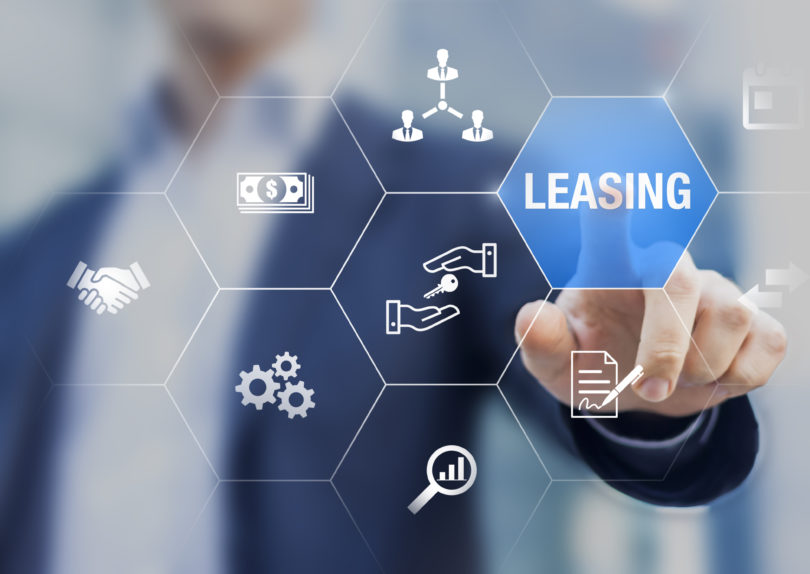Starting a business is a risky venture – but you knew that already. While there are some things that are out of your control, there are things you can do as a small business owner to reduce your risk and maximise your organisation’s chances of making it in the world of business.
One of them is to lease business assets instead of buying them.
Asset purchases are one of the biggest expenses facing any business, especially new ones. Leases offer an alternative that might be able to help your business maintain healthy cash flow and reduce upfront expenses during the first crucial months of operation.
But is leasing assets the right choice for your business?
The Pros
Avoid obsolescence issues
The rapid speed of technological development means that many of the assets you’ve purchased for your new business may become obsolete a lot faster than you expected. It’s only a matter of time until newer computers, phones, and vehicles hit the market, leaving your business in the dust. And when it does, your choices are either:
1) Spend more money to upgrade, or;
2) Keep using older equipment or technology
Leasing equipment offers a solution to this problem. Once your lease ends, you have the option to upgrade to a newer asset instead of renewing. This can be a cost-effective way of keeping up to date with technological developments and avoiding the costs that come with frequent replacement and upgrades.
Leasing can preserve your cash flow and liquid cash, and avoid borrowing
Equipment can be expensive. And depending on what sort of business you’re running, that type of gear requires substantial capital, putting a big dent in your liquid cash reserves, forcing you to incur debt, or both.
Instead of a single upfront payment, lease payments offer smaller monthly payments. This can help maintain positive cash flow and preserve your liquid cash reserves, leaving you enough cash for other important business purchases and expenses.
Leasing can also help you avoid taking on debt. The high cost of many business assets can make a business loan the only option in many cases. However, new businesses may have a hard time securing a loan, or be faced with higher interest rates.
Leasing lets you test drive assets before buying them
How often do you really use a piece of equipment? Does it add value? Does it make your operations smoother? A lease can act like a road test of a piece of equipment or technology, giving you first-hand experience for you to make a decision without forcing you to put down a large sum of money.
And finally, lease contracts come with clauses that allow you to purchase whatever you’ve leased at the end of your term – oftentimes with what you’ve paid for it so far as well as depreciation deducted.
Easier maintenance
Many leasing agreements include maintenance and servicing costs as part of the contract, taking the responsibility of asset upkeep off your hands.
Not only can this reduce or even eliminate these costs from your ledger, but it also means less work for you. As the owner of a new business, you’ve already got a lot of things you need to worry about – leasing an asset can save you the stress of researching and organising maintenance, allowing you to focus on other important parts of the business.
The Cons
You don’t have ownership
When you own something, you can do whatever you want with it. When it comes to business assets, that means you’re free to modify and customise them to suit your business’ needs – there’s nothing stopping you.
But what about leases? While a lease may give you practical control over the asset, at the end of the day it’s not your property. You don’t have formal ownership and therefore modifications, customisation, and other changes may be off-limits.
And in cases where you are allowed to make modifications, you may be required to undo or revert them at the end of the lease term. Depending on the type and extent of modifications, this can be difficult or expensive.
It isn’t always cheaper in the long-run
Depending on your lease agreement, your business might also need to pay interest on your lease on top of monthly fees. Some leases may also charge you for servicing and maintenance packages, even if you don’t use them. Depending on how long your lease agreement lasts for, you might need to keep paying these extra costs for years and years.
The end result: while cheaper upfront, you may actually end up paying more over the long-term compared to buying it.
Inflexible terms
As the owner of a new business, you know that things can move quickly. You will need to be responsive to overcome challenges and seize opportunities. Unfortunately, lease agreements aren’t always dynamic or flexible enough to keep up.
For example, the fixed duration of a lease agreement can severely limit your ability to make certain decisions. You might have leased an asset, only to discover that you don’t actually need it. However, the fixed lease term might force you to continue paying for the rest of the lease duration anyway, leading to unnecessary costs.
And speaking of unnecessary costs…
Extra fees and charges
Some lease agreements come with specific conditions that limit what you can do with the leased asset. Let’s use car leases as an example – these leases often have limitations on how many kilometres you can drive. Exceeding the agreed-upon limit may result in your business having to pay extra fees when you turn your car in at the end of the lease.
Again, this is highly dependent on the asset being leased, as well as the conditions of your lease agreement. Be sure to closely read your lease agreement before signing off on anything to avoid these types of charges.
Is leasing equipment right for your business? How to make sure you get a good deal
Once the sole domain of large organisations and big projects, smaller businesses are increasingly leasing assets like computers, vehicles, mobile phones, forklifts, and more. In many cases, they’re finding it a big help for their cash flow and expenses.
There are a lot of reasons why leasing equipment might be right for you. However, it isn’t right for every situation. Just like any other business decision, it’s important that you weigh things up carefully and read the terms/conditions closely to ensure you get the best deal for your business.
When deciding if you should buy or lease, think about:
- Budget and cash flow – in addition to upfront costs, be sure to look at depreciation, monthly payments, interest rates, and maintenance costs too
- What you need the asset for – for one-off projects, a short-term lease is usually more cost-effective
- Obsolescence – if you use equipment that becomes outdated quickly, leasing it might be a better choice
- Modifications – if the asset needs modifications to fit your needs, purchasing might be more appropriate
- Tax implications – leasing and buying equipment have different tax implications, so it’s important that you consult with a tax accountant to see what’s best for you
Each of these are questions you’ll need to ask yourself when deciding which of these options are right for you.
What’s more, it’s also important to evaluate the specific lease agreement. Depending on how long your lease is for, it might be classified as an operating or a capital/financial lease. Both types of leases impact your balance sheet differently and have different risks.
At the end of the day, there’s no one-size-fits-all solution. The decision to buy or lease isn’t a simple one, and as with any other business decision, the best call depends on your needs and circumstances. Whatever you choose, make sure you’ve looked at each of the factors brought up here and talked to a professional to find the most cost-effective solution for your business.
“The opinions expressed by BizWitty Contributors are their own, not those of BizCover and should not be relied upon in place of appropriate professional advice. Please read our full disclaimer."







